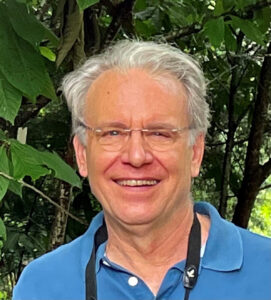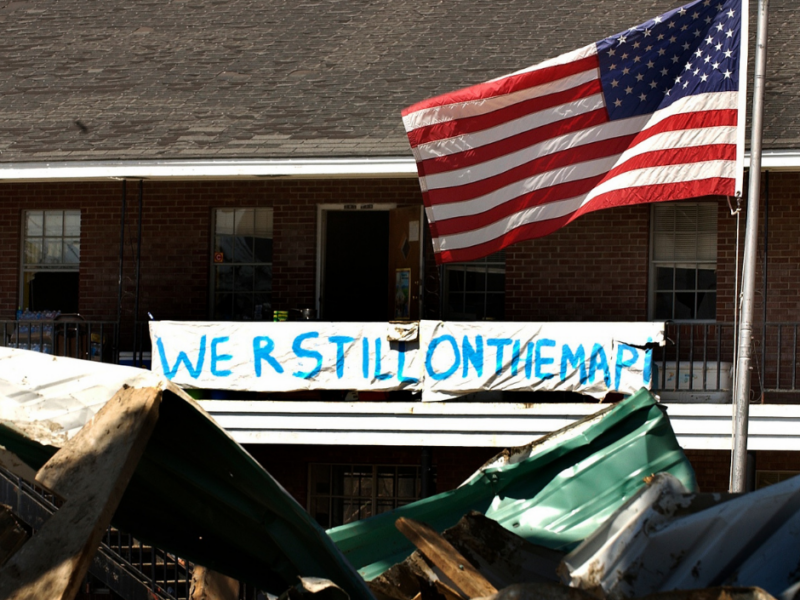Land is expensive. To own, to manage, and to preserve for past, present, and future family.
I'm learning this for myself these days. My partner and Cynthia bought a house in New Orleans last year. If you're a longtime reader of this newsletter, you already know that. But what I haven't mentioned so far is how I recently threw my name into the hat to take over my late Memmaw's house, as well as her part of our family land back in East Texas, where I spent my early years.
It was always a given that I'd eventually make my way home after spending the last decade and some change bouncing around North America and—at least for a point in time—Europe, too. Only recently did I realize I might plan on heading back to rural America earlier than I had figured, which is how my dad and I got on the topic of what managing the land requires last weekend.
In particular, that's money. And while it's tacky to talk finances and how much land one owns, I will say ours is a modest plot that's already been handed down a few generations. More than anything, coming to understand my future property taxes got me to thinking about an issue my reporting and writing has tended to circle around lately: heirs' property for Black landowners.
Or, to be exact: what forestry management can mean for those same property owners who are attempting to figure out how to afford the—at times, massive—plots of land they've inherited.
As my guest this week, John Schelhas, a research forester at the Department of Agriculture's Southern Research Station, mentions, it's a precarious issue.
XP: Could you elaborate on the benefits of forestry management for heirs' property owners?

JS: The basic point is that whether you're into forestry or not into forestry, when people own forests on private land, they'll generally only keep them as forests for a prolonged period of time if they get some income from those forests—and there's a variety of ways to get income from forests. Timber harvest is certainly one way, but it is generally to keep forests in forests. There's also a lot of African American landowners in the South, and there's a percentage of them that have what's known as heirs' property, which is basically land that's been passed down without a will or proper inheritance procedures, sometimes for several generations. It ends up being owned in common by all the descendants of the last person that actually had it titled. Heirs' property occurs in a number of different populations, but it's particularly predominant in the African American population in the South. It's generally predominant any place people didn't have trust in or access to the legal system, so they didn't go through the processes of creating wills.
There's a variety of ways that heirs' property can be very precarious. If someone buys out an owner, that person then becomes part of the decision-making process, because everybody else owns the land in common. They don't own different pieces of the land; everybody owns the whole thing taken together. That person can ask for their share, which often forces people to sell the land. The Center for Heirs' Property Preservation in Charleston, South Carolina, or the Federation of Southern Cooperatives in Georgia and Alabama; the Black Family Land Trust—there's all these groups that have been trying to help people resolve heirs' property. It's a process where you have to get the family to come together, they have to agree on certain things, and then they have to go through the process of titling the land.
See also: Horseperson avery jackson on Black land stewardship
They generally have to agree on what they're going to do with the land—are they gonna divide it up, are they gonna manage it together? Families of all types have a variety of issues, and it gets more problematic. But because heirs' property is precarious, we encourage people—even if they are satisfied with their property situation—to go ahead and get that land titled. The interesting thing is that we found in the work we've done with the sustainable forestry and African American Land Retention Program is that sometimes when people own this land, it's important to them because it's been in their family for several generations, yet it's in heirs' property and they're not really making any return for it. They want to hold on to it because their family histories are tied up in that land. They're paying taxes on it. So, it becomes more of a burden than an asset. Opportunities to become engaged in forestry can generate some income from the land and make the returns from the land more positive. That can sometimes help people come together to resolve these issues, even in spite of perhaps long standing family disagreements or things like that. If you can make it so that everybody is going to get something out of it, rather than pay to keep the land, it can be a win-win. Under more active management, they get more economic returns, the family benefits from that, and it helps them hang on to the land over a longer period of time.
XP: Is the forestry approach a new means of taking on heirs' property issues, or am I just late to the party?
JS: People have been working around this issue for a long period of time. But generally, in bits and pieces, and here and there, and for short periods of time. [Then] about, say, in 2013 or 2014, the U.S. Endowment for Forestry and Communities, which is an organization based in Greenville, South Carolina, began this program in collaboration with the with the U.S. Forest Service, the USDA's Natural Resource Conservation Service to really try to link forestry with heirs' property resolution. I think it really has shown over time that trying to do the two things at once can help people become involved, because it's not simply the burden of resolving heirs' property, but it's also the opportunity to increase income from the land and put yourself in a more secure position to hang on to the land over time. So, it's been out there as an idea, but it's really only through this program, which started with three pilot projects in North Carolina, South Carolina, and Alabama, and then head[ing] Georgia. Texas is in there, Arkansas, and Mississippi is in there. They've really spread across the South. It's done through community-based organizations with collaboration from state forestry agencies, from the federal agencies. By getting everybody to work together, starting at a community level with a trusted partner in the community, they've really been able to build up this really successful program that I think has really gone somewhere and really getting people's attention.
XP: Why do you think this type of practice isn't brought up more often at mention of the heirs' property issue?
JS: In the last maybe a year or two, I think it's kind of hit mainstream. There's been a number of articles about it. And there were some provisions in the 2018 farm bill that makes it easier for heirs' property owners to engage in conservation assistance programs from the federal government. I think more people know about it now than ever before. It still may not be very many people, but it's starting to be more well known amongst the forestry community and the agricultural community. It's hard for me to judge because I'm right in the middle of it all. But I do think the administration has prioritized improving the situation of Black farmers in the South through a variety of mechanisms, some of which deal with heirs' property. So, it's becoming a little more institutionalized, it's becoming a little more well known. It's not on the tip of everybody's tongue, but it's as good as it's right.
XP: I know some of the Biden aid for historically disadvantaged farmers was recently put on hold by a few federal judges. What difference will that make in these initiatives' momentum?
JS: The history of Black farmers, it was very difficult to obtain land. Land was often taken away from them, they didn't have access to the forestry services that they needed, they weren't really well integrated into the forestry outreach programs, they didn't have access to the conservation assistance programs from the USDA—USDA settled a class action lawsuit 18 years ago about that. So, they were disadvantaged; they had these structural disadvantages. They tend to have less land, they tend to be less active managers. That's really a legacy of historic discrimination. They also have debt. At least one of the Biden administration's plans that have been put on hold was a debt forgiveness for Black farmers, which we count forestry as a farming option in the Department of Agriculture. These community-based organizations that have been trying to help black landowners have often said what they don't need is one more loan that they have to pay back. What they really need is some assistance that really makes up for the precarious situation that they've been put in by a long history of discrimination. That's what it's aimed at doing.




